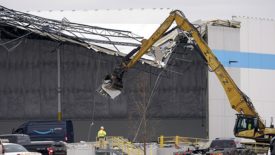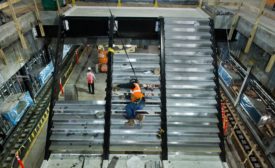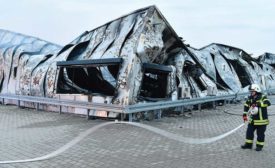Home » Keywords: » building codes
Items Tagged with 'building codes'
ARTICLES
Natural Disasters
Two Large-Footprint Buildings Brought Down by Dec. 10 Tornadoes
Kentucky and Illinois are declared disaster areas
Read More
Intellectual Property
Who Owns The Building Code? A Tech Startup's Challenge
A copyright lawsuit against web-based startup UpCodes heads closer to trial
Read More
The latest news and information
#1 Source for Construction News, Data, Rankings, Analysis, and Commentary
JOIN ENR UNLIMITEDCopyright ©2024. All Rights Reserved BNP Media.
Design, CMS, Hosting & Web Development :: ePublishing













